May 19, 2025 | 18:12 GMT +7
May 19, 2025 | 18:12 GMT +7
Hotline: 0913.378.918
May 19, 2025 | 18:12 GMT +7
Hotline: 0913.378.918
On March 10, 2022, the Prime Minister approved the Project for the Development of a Sustainable and Efficient Wood Processing Industry for the period 2021 - 2030 under Decision No. 327/QĐ-TTg. Accordingly, by 2030, the goal is for the wood processing industry to become an important economic sector; to build and develop a reputable brand for Vietnamese wood products in both domestic and international markets; and to strive for Vietnam to be among the leading countries in the world in the production, processing, and export of wood and wood products.
In addition to economic targets, such as achieving a value of domestically consumed wood and wood products of 5 billion USD by 2025 and over 6 billion USD by 2030, the Project also sets goals for sustainable development.

The requirement for sustainable forest management certification is a global trend. Photo: Tung Dinh.
Specifically, by 2030, over 80% of wood processing and preservation facilities will reach an advanced level of production technology and capacity. Additionally, 100% of wood and wood products for export and domestic consumption will be sourced from legal timber and certified sustainable forest management timber.
This demonstrates the Government's determination to ensure that all wood and wood materials are certified for sustainable forest management, contributing to Vietnam's commitments to sustainable development with the world.
Inevitable Trend
Four years before the Project was born, on October 1, 2018, the Sustainable Forest Management Certification Office (VFCO) - the organization responsible for implementing the National Forest Certification System (VFCS) - was established.
This shows that Vietnam not only keeps pace with the global trend of sustainable development but also has been ready for the implementation of sustainable forest management certification for many years. In the current period, in addition to maintaining forest cover, improving the productivity and quality of planted forests and promoting sustainable forest management are development goals of the forestry sector. VFCS/PEFC was created to meet these objectives.
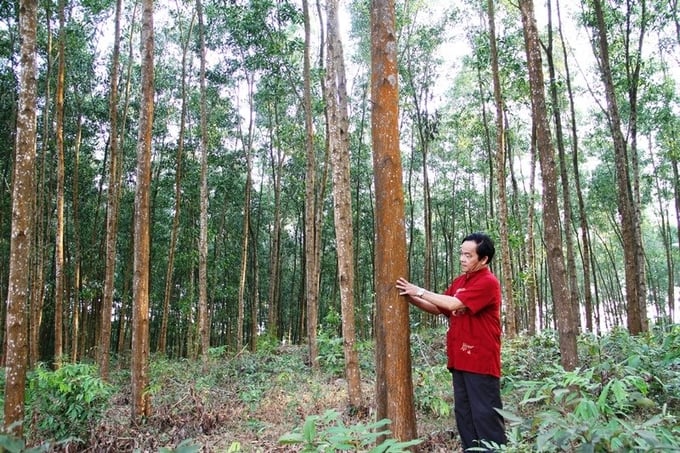
Sustainable forest production is an important prerequisite and foundation for obtaining national forest certification. Photo: NNVN.
After its establishment, by October 2020, the National Forest Certification System was recognized by the Programme for the Endorsement of Forest Certification (PEFC). This global organization conducts evaluations based on ISO quality management standards and has certified 290 million hectares of forests, accounting for 71% of globally certified forest areas.
PEFC allows each country to develop its own forest certification system with standards for sustainable forest management tailored to its specific conditions, while still meeting PEFC's requirements. In Vietnam, the National Forest Certification System (VFCS/PEFC) was officially recognized in 2020.
It can be said that implementing sustainable forest management and forest certification is an important goal of the forestry sector for the period 2021 - 2030 and with a vision towards 2050. This contributes directly to Vietnam's sustainable development goals, efforts in mitigating and adapting to climate change, particularly the goal of achieving net-zero emissions by 2050.
The National Forest Certification System aims to increase the added value of forests by applying superior tree species and appropriate forest management techniques. This helps improve and enhance ecosystem services, protect biodiversity, and ensure a legal timber supply that meets market certification requirements.
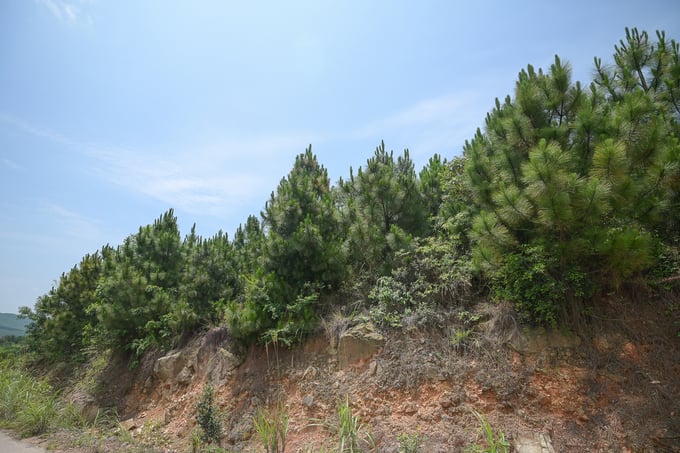
The national forest certification system aims to increase the added value of forests. Photo: Tung Dinh.
Balanced Development Between Economy, Society, and Environment
The Sustainable Forest Management Certification Office (VFCO) was established with the overall mission of promoting sustainable forest management; enhancing forest productivity and quality; and ensuring a legal and transparent supply of raw materials for the wood industry.
Additionally, VFCO aims to strengthen ecosystem services, contribute to climate change mitigation and adaptation, and promote sustainable development.
To achieve these tasks, VFCO will develop standards and guidelines for implementing sustainable forest management and forest certifications such as FM (Forest Management) and CoC (Chain of Custody). It will also build the capacity for sustainable forest management and certification for evaluators, forest owners, and businesses.
VFCO also manages VFCS/PEFC certification activities, authorizes the use of VFCS/PEFC labels in Vietnam, and continuously monitors, evaluates, and improves the quality of VFCS forest certifications.
Currently, VFCO applies the VFCS/PEFC ST 1003:2019 standard for individual forest management certification and VFCS/PEFC ST 1004:2019 for group forest management certification.
The VFCS/PEFC ST 1003:2019 standard includes 7 principles, 34 criteria, and 122 indicators. The overall goal is to ensure balanced development between the economy, society, and the environment.
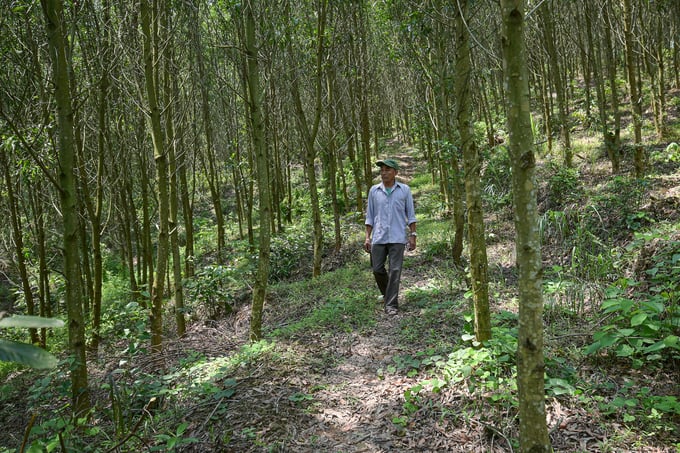
The overall goal of the forest certification system is to ensure a balanced development between the economy, society, and the environment. Photo: Tung Dinh.
Specifically, there are 9 criteria for legal compliance, related to regulations in laws, decrees, circulars, international treaties, and these need to be continuously updated. There are 4 social criteria related to the rights of local communities, livelihoods, culture, and beliefs.
There are 8 economic and technical criteria, covering everything from seed preparation to harvesting and delving into forestry techniques. The environmental aspect includes 10 criteria such as impacts, mitigation measures, ecological values, and biodiversity conservation.
Lastly, there are 3 criteria for monitoring and management related to monitoring plans, implementation of monitoring plans, and record keeping. These criteria and indicators are regularly updated to keep pace with new global requirements.
For group forest management certification, the target audience includes group organizations such as associations, enterprises, cooperatives, and cooperative alliances. These must comply with group management requirements as well as the standards for sustainable forest management VFCS/PEFC.
Initial Results
To date, 172,825 hectares of forest have been certified under the national forest certification system VFCS/PEFC, out of a total of 473,237 hectares certified for sustainable forest management, accounting for 36%. Of the 172,825 hectares mentioned, 20% are acacia and 80% are rubber.
The total number of units certified under the national forest certification system VFCS/PEFC is currently 102, with 34% being individual units and 66% being groups.
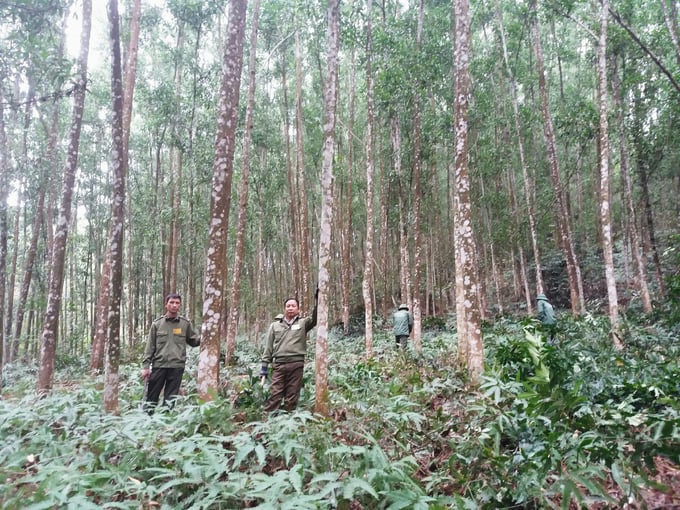
As of now, 172,825 hectares of forests have been awarded the VFCS/PEFC national forest certification. Photo: NNVN.
The certification data is publicly available on the VFCS and PEFC websites, updated in a timely manner to ensure complete information. When accessing the map, viewers can see the certified organizations, certification codes, areas, tree species, and expiration dates.
The current priorities of VFCS/PEFC are to continue developing and perfecting the standards, guidelines for sustainable forest management, and forest certification. Capacity building for certification bodies, forest owners, enterprises, and relevant stakeholders.
Additionally, they are accelerating the development and issuance of sustainable forest management certificates for production forests, prioritizing group certification through linkages with enterprises; issuing CoC/CS certificates for supply, trade, and processing enterprises (wood chips, pellets, etc.).
Other priorities include promoting and publicizing VFCS and PEFC; market linkage; monitoring, evaluating, and improving the quality of VFCS.
To provide sustainable forest management certification, three interdependent units are required in Vietnam: The Sustainable Forest Management Certification Office (VFCO), the Accreditation Office (IAF), and a certification body.
Translated by Mai Quang Huy

(VAN) The German Agricultural Society (DLG) explores the possibility of establishing a mechanization service center in Vietnam’s Mekong Delta to support farmers in accessing and utilizing advanced machinery.

(VAN) On May 16, the Department of Water Resources Management, in collaboration with the Food and Agriculture Organization of the United Nations (FAO), held a signing ceremony for the GEF-8 project document.

(VAN) Food safety, mechanization, vocational training, and market opening are key areas of cooperation expected between the Vietnamese Government and the Federal Republic of Germany.

(VAN) Deputy Minister Nguyen Quoc Tri also expressed his hope that Cuba will soon overcome its current challenges, attain food security, and further expand cooperation with Vietnam.

(VAN) The project contributes to enhancing the resilience of communities vulnerable to the impacts of climate change, with a primary focus on local women.
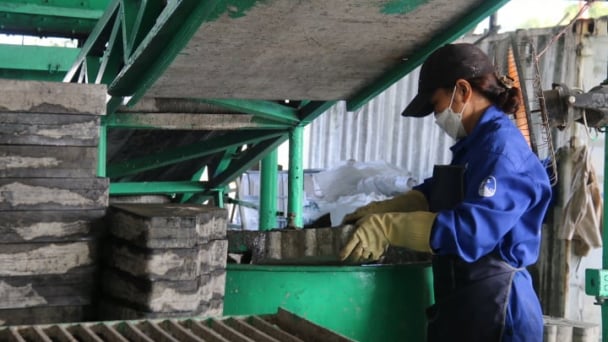
(VAN) Green materials help save energy and resources. However, after more than 10 years, Vietnam has only developed over 200 green buildings with more than 6 million square meters of floor space.
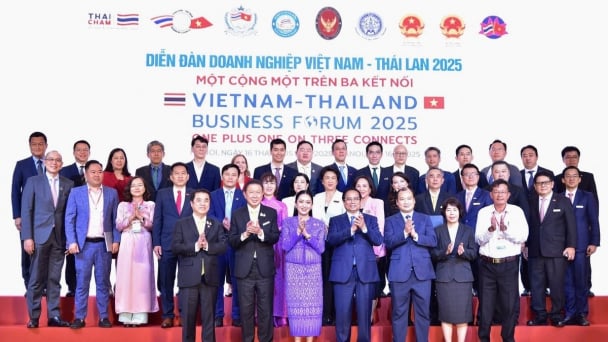
(VAN) Vietnam - Thailand Business Forum 2025: One plus one on three connects, marking a milestone in the comprehensive strategic partnership between the two nations.